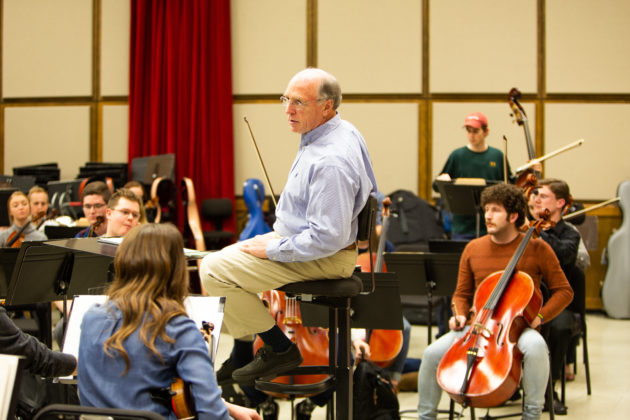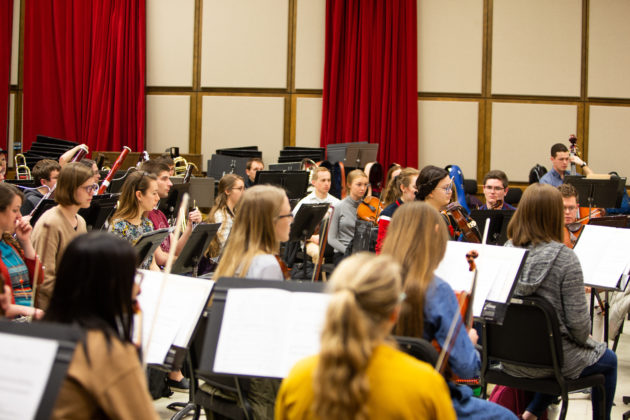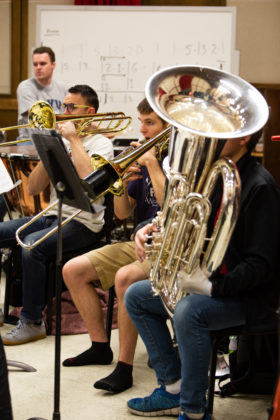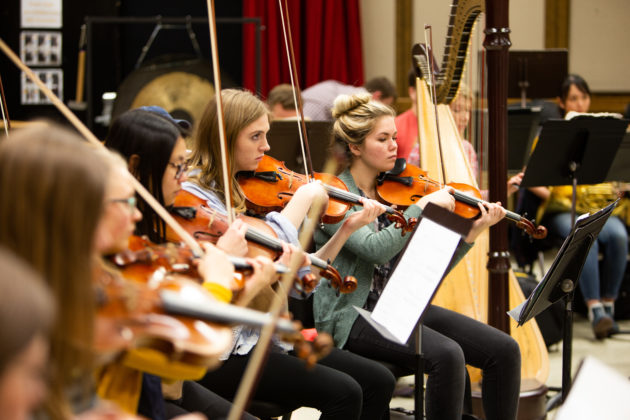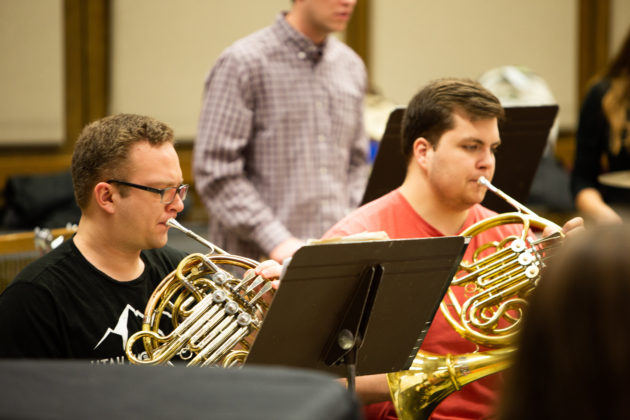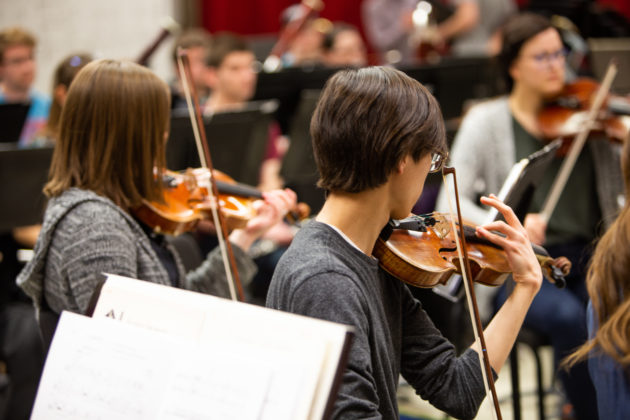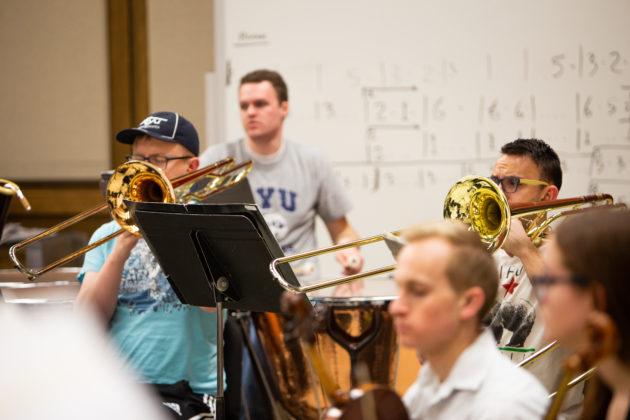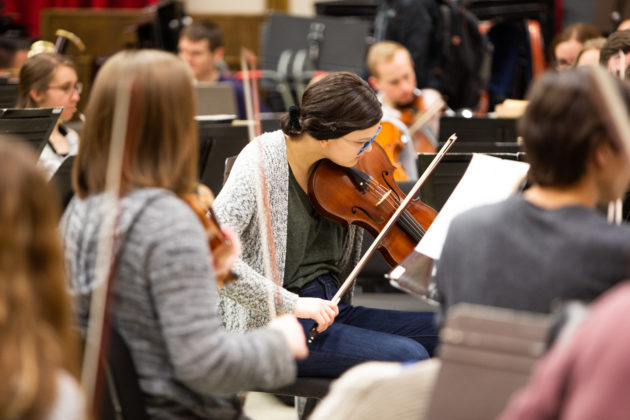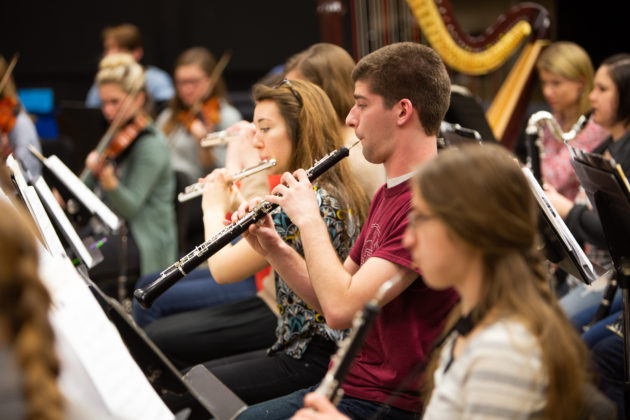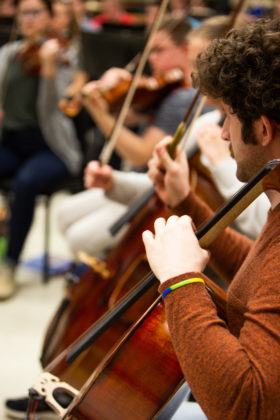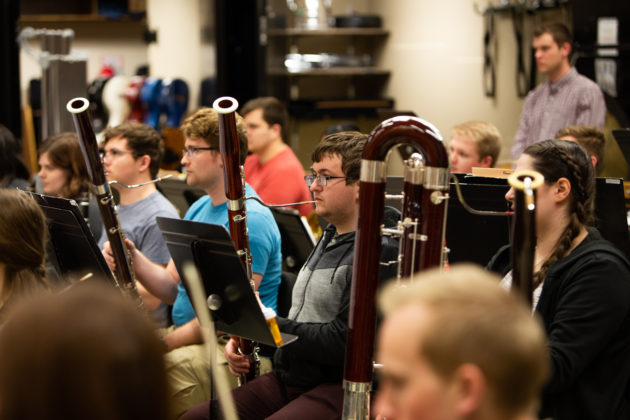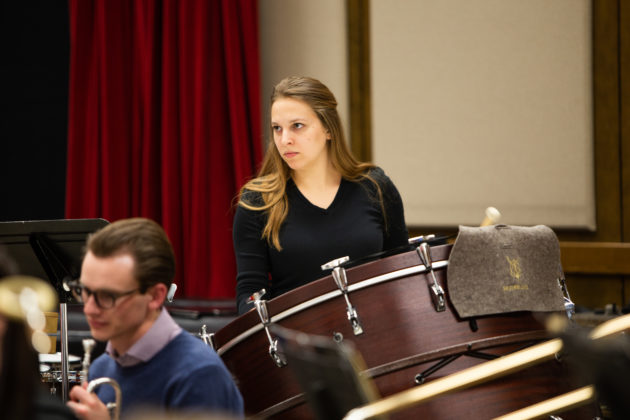It was 1976, and change was coming to China.
That year was the end of the Chinese Cultural Revolution, which, contrary to its name, was the persecution of intellectuals, people deemed “class enemies” and those with ties to the West or the former Nationalist government, according to the New York Times. It also included the destruction of historical sites and cultural relics as part of a campaign to wipe out the “Four Olds”: ideas, customs, culture and habits.
So when the BYU Young Ambassadors toured China in 1979, it was one of the earliest Western performing arts group to be in the country, according to Wenhao Mu, a BYU choral conducting master’s student from China.
“The door of China had been closed for many, many years,” he said. “When the door re-opened, we … had very little understanding about Western culture.”
The tour was the idea of then-BYU President Dallin H. Oaks, according to the Deseret News. President Oaks, who is now the first counselor in the First Presidency of the Church of Jesus Christ of Latter-day Saints, attended a 1978 meeting in which then-Church President Spencer W. Kimball spoke highly of China’s high standards and family values. Upon returning from this meeting, President Oaks asked BYU officials to begin making plans for a performing arts group to go to China, despite no established U.S.-Chinese diplomatic relations at that time.
The diplomatic relations, however, came in early 1979, and as university representatives traveled to China and the necessary contacts were made, an invitation for BYU to perform in China fell into place.
The 1979 tour “had a huge impact,” according to BYU Director of Orchestras Kory Katseanes. China Central Television had recently launched and asked to broadcast BYU’s performance live — and since the station didn’t have much content at the time, Katseanes said they simply kept broadcasting it over and over.
“So a lot of people in China learned about BYU back then, and for many years, it was the most widely recognized American university in China because of those broadcasts, and it still is very well known in China from all the tours,” Katseanes said.
In the years since then, Katseanes estimated BYU has sent over 35 tours to China, two of which he’s been on. He also said that BYU typically sends only one performing arts group at a time to China.
Now, however, to celebrate the 40th anniversary of BYU’s first tour in China, eight performing arts groups will travel overseas for what Katseanes called a “Homecoming Spectacular for China.” He estimated over 200 people will be in the three-city tour, which will run from approximately May 23 through June 1. Because of the number of people traveling, Katseanes said the group will travel in three different waves that will arrive in and leave China within days of each other.
It is BYU’s first tour to China since President Russell M. Nelson, who is known for his friendly relations with China, was sustained as the 17th President of the Church of Jesus Christ of Latter-day Saints in January 2018.
“This (tour) is different and markedly different,” Katseanes said.
The program
Katseanes said knowing the 40th anniversary of BYU’s first tour in China was approaching, BYU wanted to create a showcase tour that captured groups that have been to China while adding new groups that have never been.
He said the International Folk Dance Ensemble, the Native American section of Living Legends, the BYU Young Ambassadors, BYU Vocal Point, the Cougarettes, Cosmo’s Dunk Team and one couple from the Ballroom Dance Company will be on the tour. Katseanes is taking the BYU Chamber Orchestra, which Katseanes said will act as the “band” for the other groups.
He also said tours usually go a little longer than two weeks and go more places, but this tour is “fairly short and very focused.” The groups will play two concerts per city, starting in Beijing, then going to Xi’an and ending in Shanghai. He said many diplomats will attend, particularly in Beijing, but the concerts are open to the public.
Katseanes said the BYU Chamber Orchestra will start the program with “Liberty Fanfare“ by John Williams, but it will do everything else in conjunction with other groups. For example, the orchestra will play a well-known piece of Chinese classical music called “The Butterfly Lovers’ Violin Concerto“ by He Zhanhao and Chen Gang for the couple from the Ballroom Dance Company. It will also play music from “West Side Story“ for the BYU Young Ambassadors, “With Malice Toward None“ from the movie “Lincoln” for the Cougarettes, and “Riverdance“ by Bill Whelan for the International Folk Dancers.
Katseanes said BYU is paying for a large portion of the trip, with some of the funding coming from ticket sales and some of it coming from student’s tour fees.
He also said the tour is being managed by BYU Performing Arts Management, which routinely works with the China Performing Arts Agency for these tours, and which the university is working with again for this tour.
BYU Performing Arts Management Director Rex L. Barrington said Assistant Manager Shane Wright is the artist manager for the upcoming China tour. Wright did not return multiple requests for comment.
Why China, and why now?
Katseanes said BYU chose the 40th anniversary for this tour because the university wants to make sure those who saw the 1979 tour have a chance to see the anniversary tour.
“If you wait 10 more years, you might lose a lot of those people,” he said.
Additionally, BYU chose China because “Why not?” Katseanes said BYU performing arts groups go to all the countries in the world they can, and they’ve probably been to almost all of them. He estimates he’s been on about 10 tours to various countries himself.
“Nothing’s off limits as far as we think. We want to be in all parts of the world, and we’ve had a rich history in China for the last 40 years,” he said. “They’re interested in the arts there. They have a lot of their own culture. It’s a thriving, bustling country.”
He said he views these tours as an educational opportunity for students to take the craft they’ve worked on daily and use it in a performance situation.
He also said these tours are the most professional-grade opportunity they offer students, since, like a professional orchestra, they’re expected to travel to a city, unpack, play, pack up and go to the next city.
Additionally, these tours are cultural opportunities “unrivaled by any other” to travel, perform, eat, visit museums, see historical sites and interface for hours a day with the people of a country.
“You learn a lot, and that to me is really an important part,” he said.
He also said BYU performing arts groups are “some of the best of their kind in the country” and he thinks it goes unchallenged that they are the most traveled ensembles in the country.
“No one even attempts to travel like this,” he said. “This is a wonderful commitment on the part of BYU to send these groups out. I think it reflects in a great deal of positive ways back on the university.”
BYU Chamber Orchestra bassist Christian Hales will be traveling on the China tour. He said orchestra members are hoping to reinforce BYU’s relationship with China and with their rich musical culture.
“BYU has a lot of connections, and so we’re always interested in expanding those connections and hopefully making opportunities for further correspondence and travel,” he said.
Mu said China’s older generation knows BYU from that first Young Ambassador’s tour, and he’s confident this anniversary tour will bring the spirit and the power of love and music to Chinese audiences.
“I am very sure it will be another marvelous experience for both the Chinese people and the BYU students,” he said.
Katseanes said the China tour will perform their show twice on campus before leaving, on May 10th and 11th.
Additionally, the BYU Chamber Orchestra will travel to China May 19 so orchestra members can rehearse with China’s Central Conservatory of Music, which Katseanes called “the Juilliard Conservatory of China” and which he said is the country’s biggest and most important music conservatory. The BYU Chamber Orchestra will perform a concert with the Central Conservatory of Music on the evening of May 21 before syncing with the main tour.
The BYU Chamber Orchestra will perform its collaborative Central Conservatory of Music concert on campus on March 22. Katseanes said the Central Conservatory of Music is sending a conductor, two composers and a pipa soloist to BYU for this concert, with two of the program’s four pieces being written by their composers and the other two written being written by composers on BYU’s composition faculty. Katseanes said it’s the start of what he and his colleagues hope is the beginning of an official partnership with the Central Conservatory of Music.
“For people who want to come and send us off and (see) how this show is going to look, they can come,” he said.

